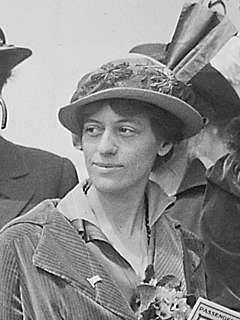A Quote by Robert Dallek
In the late 19th century, the Populists - a protest movement of mainly disaffected farmers and workers - threatened to overturn established authority.
Quote Topics
Related Quotes
In the late 19th century there was a major union organization, Knights of Labor, and also a radical populist movement based on farmers. It's hard to believe, but it was based in Texas, and it was quite radical. They wanted their own banks, their own cooperatives, their own control over sales and commerce.
Although it is hard to see why any sensible authority would feel threatened by the peaceful expression of one's point of view, there is a long history of trying to repress subversive depictions of political figures - back in the 19th century, for example, France's King Louis Philippe was depicted as a piece of fruit.
The use of the word royalty, as fee to a proprietor for the exploitation of a work or property, derives from the period when the sovereign assumed title to all wealth of the realm. It was the struggle for freedom from these encroachments of the state that chiefly marked the Nineteenth Century, and established everywhere constitutional regimes of limited authority. In the Twentieth Century, however, we have witnessed a gradual and almost unrestricted movement back to state authoritarianism, primarily in the economic sphere, accompanied by the spread of state monopoly and intervention.
In less than a century we experienced great movement. The youth movement! The labor movement! The civil rights movement! The peace movement! The solidarity movement! The women's movement! The disability movement! The disarmament movement! The gay rights movement! The environmental movement! Movement! Transformation! Is there any reason to believe we are done?
I was really interested in 20th century communalism and alternative communities, the boom of communes in the 60s and 70s. That led me back to the 19th century. I was shocked to find what I would describe as far more utopian ideas in the 19th century than in the 20th century. Not only were the ideas so extreme, but surprising people were adopting them.







































